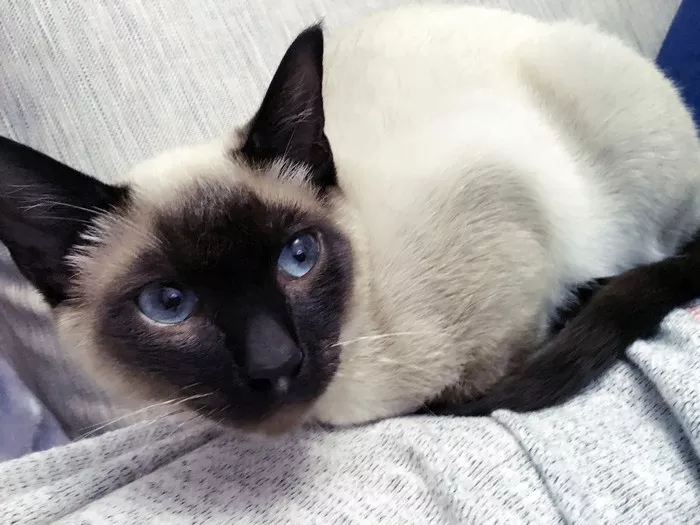Introduction:
Siamese cats have captured the hearts of cat lovers worldwide with their striking appearance, unique personalities, and captivating blue eyes. Preserving and perpetuating the Siamese breed requires responsible breeding practices that prioritize the health, temperament, and overall well-being of these beloved feline companions. In this article, we will explore the responsible methods employed in Siamese cat breeding, focusing on maintaining breed standards, genetic health, and ethical considerations.
Selective Breeding:
Responsible Siamese cat breeding involves meticulous selection of breeding pairs. Breeders carefully evaluate the health, temperament, and conformation of the cats to ensure they align with breed standards. This process involves extensive research, knowledge, and experience to identify cats that possess the desired traits, including the iconic pointed pattern, blue eyes, and sociable personalities characteristic of the Siamese breed.
Genetic Health Testing:
Maintaining the genetic health of Siamese cats is of utmost importance in responsible breeding. Ethical breeders conduct comprehensive health screenings to identify potential genetic issues that may be prevalent within the breed. Common genetic tests for Siamese cats may include screenings for hypertrophic cardiomyopathy (HCM), polycystic kidney disease (PKD), and progressive retinal atrophy (PRA). By testing breeding cats and ensuring they are free from these inherited conditions, responsible breeders work to reduce the risk of passing on genetic disorders to future generations.
Socialization and Temperament:
Responsible breeders place great emphasis on the socialization and temperament of Siamese kittens. Early socialization ensures that kittens grow into well-adjusted, confident, and sociable cats. Ethical breeders provide a nurturing environment, exposing kittens to various stimuli, handling them from an early age, and introducing them to different people and experiences. This helps develop their social skills and ensures they are ready to become loving companions in their new homes.
Breeding Age and Frequency:
Responsible Siamese cat breeders prioritize the health and well-being of their breeding cats. They adhere to recommended breeding age guidelines, ensuring that female cats are mature enough to handle the physical demands of pregnancy and childbirth. Breeders also ensure that cats are not bred too frequently, allowing sufficient time between litters for the mother’s recovery and well-being. This approach helps prevent potential health complications associated with overbreeding.
Responsible Placement of Kittens:
Ethical Siamese breeders carefully screen potential adopters to ensure they can provide a loving and responsible forever home for the kittens. They may ask questions about the adopter’s experience with cats, living environment, and their commitment to providing proper care, including regular veterinary check-ups, appropriate nutrition, and a stimulating environment. Responsible breeders prioritize the welfare of their kittens, ensuring they go to caring families who will provide a lifelong commitment to their well-being.
Ethical Practices and Transparency:
Responsible Siamese cat breeders uphold ethical practices and maintain transparency with prospective adopters. They provide accurate and honest information about the breed, including any known health issues, genetic testing results, and the lineage of their cats. Open communication and transparency build trust between breeders and adopters, fostering a positive relationship and ensuring the best possible outcomes for the kittens.
Conclusion:
Responsible Siamese cat breeding is a labor of love that requires dedication, knowledge, and a deep commitment to the breed’s well-being. Through selective breeding, genetic health testing, socialization, and responsible placement, ethical breeders play a vital role in preserving the Siamese breed’s legacy. By adhering to these responsible practices, Siamese cat breeders contribute to the overall health, temperament, and longevity


























